The Calendar of New Beginnings Read online
Page 10
She raised the camera and sized up the shot. Since it was a flat-screen viewer, she could use both eyes to frame it. Her depth perception wasn’t an issue here, thank heavens, since it only affected her when she tried to pick up the objects closest to her.
Sinking to her haunches, she angled the phone until it captured the exposed rock a few feet away in the water. She lowered the camera to look at the scene with her naked eyes, and when she closed her left eye, as she was apt to do out of habit, her vision immediately went blurry. And darn it all to hell, she could hear in her head her doctor telling her not to do that.
She almost lowered her phone in defeat. Taking photos shouldn’t make her feel helpless and weird.
But she was made of sterner stuff than that. Adjusting the camera again, she took a few photos of the sunlight illuminating the water around the rock. Her new inclination to close her right eye like she was some pirate photographer with an eye patch wasn’t a longterm answer. It certainly wasn’t comfortable.
It didn’t surprise her that the photos were all wrong. She wasn’t used to the technology and her timing was off. But how was she going to make this calendar happen when she couldn’t even capture a decent photo with a camera phone? Could she back out? But no, despite her initial reluctance, she was determined to see it through. She’d just have to go back to the basics.
She was going to have to relearn her craft until she was surer of the fate of her right eye. God, she was going to have to investigate buying a new camera model; one with an electronic view finder. It sucked, but Lucy knew better than to rail at fate. That wasn’t who she was. And she wasn’t a quitter either. She was an award-winning photojournalist, and she was going to continue to be one. Somehow. And dammit, she was going to be a freaking awesome teacher too.
As she deleted the photos of the pond, her phone chimed. It was from Andy.
Good luck with your first class today. You’re going to knock them on their butts.
Nice of him to send her a text when he was working. Sharing their ice creams had cemented their bond in a whole new way. There’d been some unexpected intimacy, but Lucy knew that was from Andy’s vulnerability. Still, the way he’d looked at her a few times…
But they were just getting used to looking at each other again, right? That was normal.
She texted him back. I’m a little nervous, but I have decided to be the best photography teacher they could ever find in Dare Valley.
I don’t have any doubts, he responded. We’ll have to huddle again later so you can tell me all about it.
Huddle. Friend talk. Her mind flashed back to the awkward look that had crossed his face after she strong-armed the bill for their ice creams.
You’ll have to see my new digs. It’s like Strawberry Shortcake meets Jane Austen.
Her phone immediately buzzed. No kidding. I’m almost afraid to cross the threshold. Gotta run. A nurse just buzzed me. Good luck!
Good luck indeed. She went inside to prepare for her first class. Again. She might not be able to take the kind of photos she wanted to right now, but by God, she could teach others how to take their own.
By the time Lucy drove to the university later that afternoon, she felt calmer and more decisive. The faculty parking lot was easy to find, and she’d snuck into enough journalism classes as a teenager to remember the path to her new department. If only Arthur Hale had still been teaching at the time—back in the eighties, he used to teach one coveted class every year.
The administrative assistant to the dean showed her to her new office, leaving her with a warm welcome and a shiny brass key to the lock on the door. The office had one lone window, and Lucy was happy for the light.
“I was hoping I might catch you before class,” she heard a man say from behind her.
Turning, she smiled. “Hi, Tanner.”
“Hi, Lucy,” he responded, leaning against the doorframe. “I remember my first day as a teacher, so I thought I’d pass along the best advice anyone has ever given me. It comes from my sister-in-law Jill.”
It was impossible to keep her mouth from twitching. Jill Hale had been making waves since childhood, and Lucy had always enjoyed running into her on her trips home. “Knowing Jill, I’m sure it’s a doozy.”
“She told me not to be boring,” he said with a slow grin. “And Meredith reminded me most kids here want to be like us, so we’ll have a cult following, like it or not.”
She sat on the edge of the desk. “Do they follow you around and hang on your every word?”
He shrugged. “Most of the time. Unless I’ve given them a bad grade on an assignment. Then they try and work their way back into my good graces.”
She laughed. “Well, that’s going to be weird. I might ask for some tips on handling that kind of adulation. I’m not used to it.”
His brow knit then, and she stilled. He was easing into something, and Lucy feared she knew what it might be.
“How much do you know about why I’m back?” she asked boldly. “Because I’m happy to hear your pointers about how to deal with a cult following, but that’s not the only reason you’re here.”
He ran his tongue across his front teeth. “My wife might be a little younger than you, but she’s always looked up to you. And then there’s Arthur… They’re worried, and since we all have black ink in our veins, as the Hales say, I made some calls.”
Lucy tapped her foot on the carpet. “I knew it was possible Arthur might look into things, but I underestimated your connections. I…didn’t think.” She’d been too busy worrying about everything from healing to the future of her career to returning to Dare Valley.
“I didn’t come here to get into your business, and you can tell me to buzz off.” He pushed off the doorway and walked toward her. “I might have come to Dare Valley for different reasons initially, but I was burned out too. I didn’t know anyone when I arrived—unlike you—but I lucked my way into the best family around. The Hales and O’Briens are close. And you and me…we’ve been in some of the same places, same situations.”
She nodded, feeling her chest grow tight.
“I’m here as a friend if you want to talk about what happened with someone who knows what it’s like to work in war zones.” He ran his hand through his hair. “Being here taught me not to do everything alone. And that’s what I came here to say.”
He was more than sweet to extend that offer. She knew it couldn’t have been easy for him. The journalists who covered wars tended toward a lone-wolf mentality—she needed to look no further than herself to see evidence of that. But sharing her story with Andy had soothed her. Perhaps sharing it with Tanner would do the same.
“They’re not sure I’ll regain full sight in my right eye,” she began, clenching her hands together. “I don’t have to tell you what that might mean for my career.”
He didn’t move. Didn’t say anything. Just waited for her to continue. And so everything she’d been through simply flowed out. At one point during her telling, he helped her into her black chair and grabbed the empty one in front of her desk for himself, positioning it closer to her. How he’d sensed that her legs were trembling, she would never know. When she finished, she felt messy and vulnerable and hollow. But she also felt heard.
Since she’d listened to hundreds of people talk about the tragedies they’d suffered, she knew it wasn’t easy. Not everyone was capable of listening to the hardships of others. Tanner was most certainly one of the prize few, which had no doubt helped him become the successful international correspondent he had been.
“Is there anything I can do to help?” he asked. “I know you’re taking care of everything, but is there anything you need? A drive to the eye doctor in Denver? You tell me, and it’s done. Mere might be close to having our baby, but we’re here for you, Lucy. Arthur is too. You know how he is. He likes to poke and prod as much as any salty journalist, but that man would give you the shirt off his back if you needed it.”
She wiped a few tears away from her
eyes. “I’m sorry I’m so emotional. I was just thinking about him as I walked here today. I’ve always regretted I was too young to attend the classes he used to teach here.”
The corner of Tanner’s mouth lifted. “Arthur said you used to sneak into journalism classes when you were in high school.”
“He knew about that?” she asked.
“Sure did. Who do you think told the teachers to look the other way? You were interning for him, after all. Plus, he founded the journalism school. He kept them from busting you.”
She sat back in her chair. “He never said a word.”
“No, but he was bursting with pride as he told me about it yesterday.” Tanner looked over his shoulder at the plain white wall clock. “Your class starts in twenty minutes. I should let you get ready. We can talk again.”
“I’d like that,” she said as he rose.
“Arthur would also appreciate hearing your story,” Tanner said at the door. “He’ll tell you the truth helps lower his blood pressure, but really, all it will do is ease his worry.”
She rubbed her brow. “I’m not sure hearing my story is going to make him worry less.”
Tanner knocked on the door, confusing her.
“He’s tougher than wood,” he explained. “Don’t treat him like an old man. He’s more tenacious than men half his age. He only knows you were injured in that village. It’s for you to decide if you want to share the rest, not me.”
“You’re right. I’ll go see him.”
“Good luck with your class,” Tanner said. “I might sit in sometime if that’s okay.”
She smiled. “I promise to look the other way.”
After he headed out, she went over her notes one last time. Her syllabus was unorthodox, but then again, so was she. If they wanted to learn how to capture decisive moments in photos, they would have to be prepared.
Her classroom was packed, just like she’d been told it would be, when she arrived at three o’clock. Thirty-three students gave her their full attention when she stood at the front of the room.
“As you know, I’m Lucy O’Brien,” she began. “Since you’re here, I don’t need to tell you who I am or what I’ve done. All you need to know is that I’m really good at what I do. I assume you’re here because you want to be really good at taking photographs.”
A few of the students nodded, and God help her, some of them looked like they should be in high school. Most of them were green as grass—like she’d been. A few had obvious attitude. And Tanner was right. She noticed a sizable number of them were hanging on her every word.
“I’m going to teach you some camera techniques,” she said, handing out a stack of syllabuses to the person on the end of the front row to pass along. “But I’m also going to simulate extreme moments of tension and noise during which you will be required to take a photo that will be graded. If you’re scared of what happens in conflict zones, you might want to drop out right now and give one of the twenty-two other people on the wait list your spot.”
She paused for a moment and scanned the class. People were shifting in their seats. Many of them weren’t making eye contact now.
“Just so you have a sense of what you’re getting into, for one exercise, I’m going to play a particularly grisly scene from a recent battle in Afghanistan, captured by an award-winning cameraman, and ask you to take a picture as it’s being played. The dean has graciously given me permission to use the planetarium for this purpose. You’re going to see people getting shot, dying, moaning, screaming. Hear machine guns being fired. Your hand is going to shake. Your adrenaline is going to rush.”
A kid in the front row gulped, and she stared at him before continuing to scan the crowd. These were her students now, and she felt a new sense of responsibility. It was up to her to teach these kids what she knew so they could survive in war and be successful if they followed a career path similar to her own.
“I can’t simulate people trying to kill you as you take a picture,” she said, walking to the other side of the room. “But I can help you gain some understanding of what that’s like. And how freaking hard it is when you’re trying to take the perfect photo to capture what’s unfolding around you. To create an image that will reach out and grab the throats of people sitting a world away in London or Hong Kong or Dare Valley.”
Someone held up extra copies of the syllabus, so she walked to the last row and took them from him. She kept her pace slow and deliberate as she made her way back to the front of the room, taking time to settle into her new skin.
“We’re also going to take photos of starving animals at the local pound and dead animal carcasses on the road. I can’t find a starving child or someone dying of a machete wound here in Dare Valley, but we can start initiating you into the world of an international photojournalist.”
She pulled out her camera phone and waggled it in the air. Her students’ eyes latched onto the object.
“Who plans on using this camera for class?” she asked. “You’ll notice I didn’t specify a professional camera as a class requirement because they can be incredibly expensive.”
All but a few outliers raised their hands.
“This used to be your best friend,” she said before setting it on the table in front of the dry-erase board. “It’s a good camera for a college student. You’re in journalism school because you’re still learning and deciding how you’re going to specialize. I’m going to show you different camera models a professional would consider. Personally, I’m a Leica fanatic, and if you don’t know Leica, you’d better Google it once class finishes. As far as I’m concerned, if you don’t even know about the most famous camera models out there, you’re going to be in trouble in my class.”
Several people were furiously writing in notebooks while others tapped on their tablets and laptops. It was weird to see that kind of technology in the classroom. She’d gone to college when the most advanced item a student could bring to class was a graphing calculator.
“You’re also going to become intimately familiar with Henri Cartier-Bresson, who’s considered the father of photojournalism. You’re going to read a few of his books during our time together. Don’t worry about writing this down. It’s in the syllabus.”
The students gave her their attention again. She had them on edge now, she could tell. This class was more than they’d bargained for. Jill would be proud—no one would be be able to accuse her of being boring.
“Papa Henri—as I like to call him—said a lot of things about this magical art called photography. You’ll read about them in his books, and if you miss a particularly important insight, I’ll point it out here in class. He’s going to be teaching you too, so don’t think it’s only going to be me up here.”
She put her hands behind her back as she strolled to the dry-erase boards. Choosing a purple one—at least it looked purple—she uncorked the lid. “My favorite quote from Papa Henri is this: ‘It is an illusion that photos are made with the camera…they are made with the eye, heart, and head.’ When you take a photo for my class, make sure you’re using all three.”
The words touched her anew. What if she had lost one of the three critical elements needed to capture a moment of reality in a photograph? She shook off the fear. This wasn’t the time.
Turning, she folded her hands and regarded her students. “Now. I want to hear your names, and why you’re here.”
Chapter 9
After a quick run through the park after work, Andy showered and headed over to his mother’s house. He hadn’t called to tell her he was dropping by, but he knew she’d be there alone. Moira had agreed to help arrange it.
His sister was free and clear of her old job, having cleared out her office on Friday. They’d celebrated with drinks afterward. His sister hadn’t asked him about his protectiveness toward Lucy at Hairy’s the other night, thank heavens. Then again, she knew him well enough to deduce he had his reasons.
When his mom opened the door and saw him, she immedi
ately tightened up. It wasn’t like him to stop by without warning, let alone at five thirty on a Monday.
“What’s the matter?” she asked, looking over his shoulder. “Is something wrong with Danny?”
His heart sank, and he knew he had been right to come here. It was past time for him—for them—to face their demons. “No, he’s with Jane and Moira. Jane agreed to give Danny and Rufus some dog training after I begged. And Mo’s soaking up all the auntie time she can get during her break from the day job.”
“Moira told me she was heading to Jane’s, but she didn’t mention seeing Danny.” Her shoulders sagged with relief, and a slow smile flickered across her round face. “You were a good daddy to let Danny have a dog. I know Rufus isn’t easy, but he makes him so happy.”
“I tell myself that daily,” Andy said with a laugh, pulling her into a hug.
“Lucy told you about our calendar,” his mom said against his chest.
He nodded. “Yeah. How about we sit and have a drink?”
She fussed with the hem of her cream blouse before turning and striding off to the kitchen. He followed her, aware of the tension locking her shoulders in place once again.
“Mom,” he said as he entered her bright apple-green kitchen, “I’m not upset about the calendar. I was just…bothered you were afraid to tell me about it.”
After handing him his favorite beer, she busied herself with pouring a glass of Cabernet. Giving her a moment to stew, he retrieved the shamrock bottle opener, popped the top off his beer, and took a deep draw. The IPA wet his whistle, but it didn’t soothe his dry throat.
“Mom, we need to talk about it,” he said, and she turned around so quickly, the wine sloshed a little in her glass.
He took it from her and led the way to the kitchen table. She kept an array of bright tablecloths on it now, but when they were growing up, the bare surface had played host to a record number of ketchup stains and spilled milk. He and his siblings used to finish their homework at this table after their afternoon snack. Once complete, they’d packed up their individual book bags and gone outside to play. Usually, Lucy was waiting for him in the yard because she always finished her homework faster than anyone alive.

 Valley of Stars (The Merriams Book 3)
Valley of Stars (The Merriams Book 3)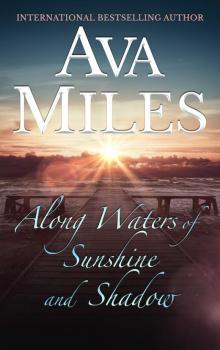 Along Waters of Sunshine and Shadow
Along Waters of Sunshine and Shadow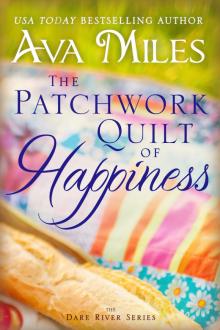 The Patchwork Quilt of Happiness
The Patchwork Quilt of Happiness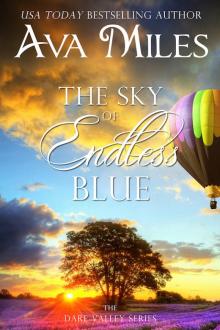 The Sky of Endless Blue
The Sky of Endless Blue A Forever of Orange Blossoms (The Merriams Book 5)
A Forever of Orange Blossoms (The Merriams Book 5) Wild Irish Rose
Wild Irish Rose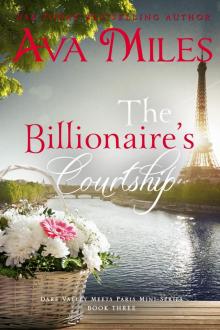 The Billionaire's Courtship
The Billionaire's Courtship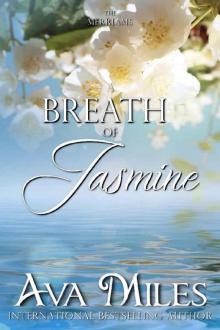 A Breath of Jasmine (The Merriams Book 6)
A Breath of Jasmine (The Merriams Book 6)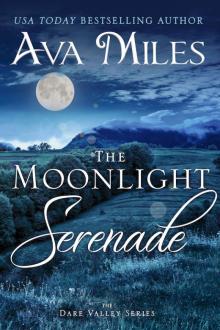 The Moonlight Serenade
The Moonlight Serenade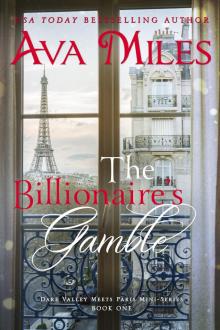 The Billionaire's Gamble
The Billionaire's Gamble The Fountain of Infinite Wishes (Dare River Book 5)
The Fountain of Infinite Wishes (Dare River Book 5)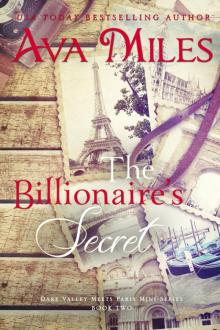 The Billionaire's Secret
The Billionaire's Secret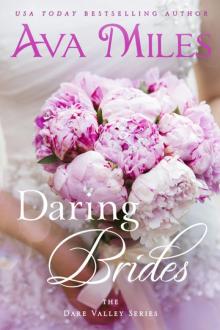 Daring Brides
Daring Brides The Perfect Ingredient (Dare Valley)
The Perfect Ingredient (Dare Valley)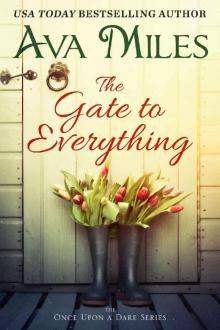 The Gate to Everything (Once Upon a Dare Book 1)
The Gate to Everything (Once Upon a Dare Book 1) Love Among Lavender
Love Among Lavender The Chocolate Garden (Dare River Book 2)
The Chocolate Garden (Dare River Book 2) Fireflies and Magnolias
Fireflies and Magnolias French Roast
French Roast Home Sweet Love
Home Sweet Love Nora Roberts Land
Nora Roberts Land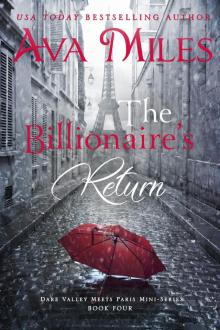 The Billionaire's Return
The Billionaire's Return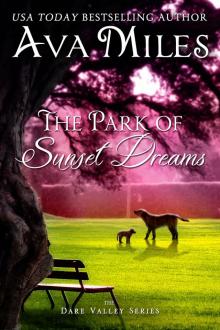 THE PARK OF SUNSET DREAMS
THE PARK OF SUNSET DREAMS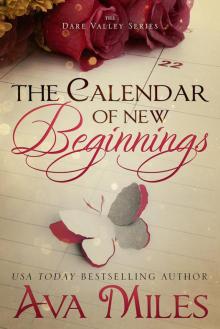 The Calendar of New Beginnings
The Calendar of New Beginnings The Grand Opening
The Grand Opening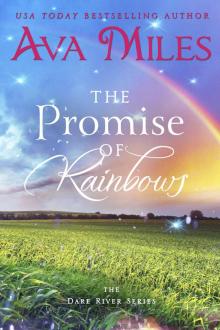 The Promise of Rainbows
The Promise of Rainbows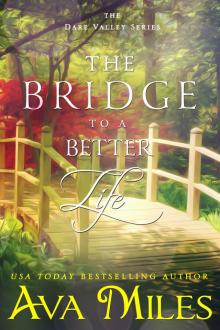 The Bridge to a Better Life
The Bridge to a Better Life